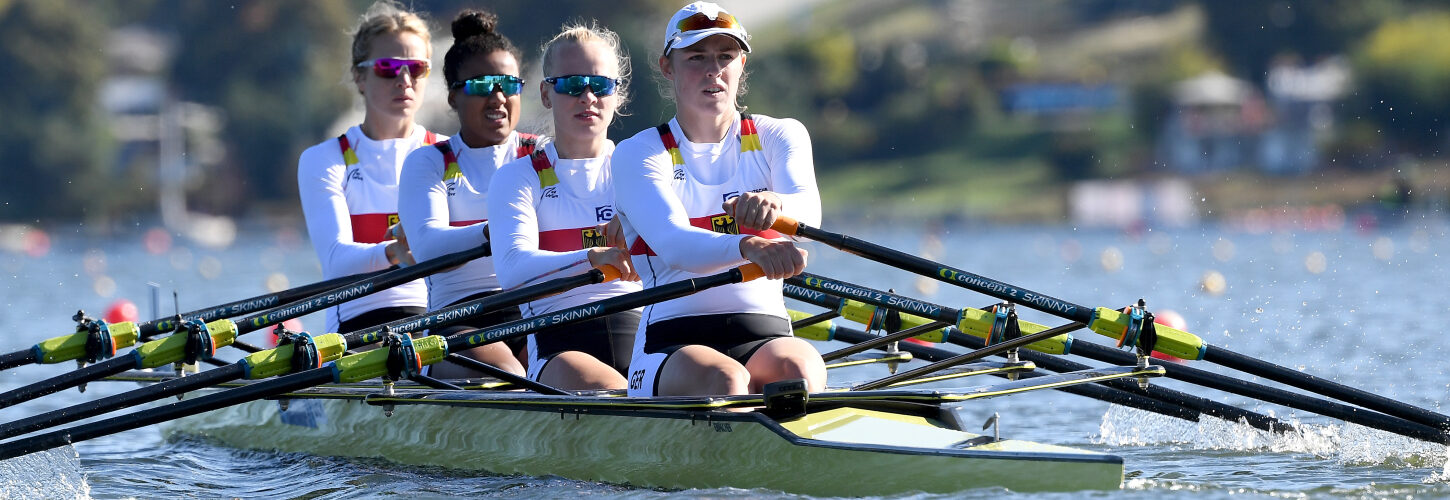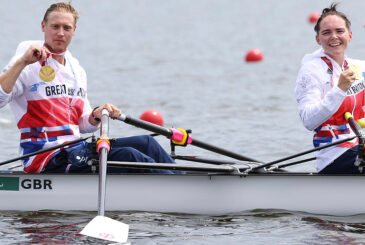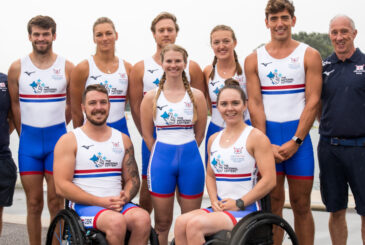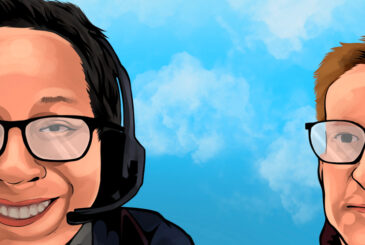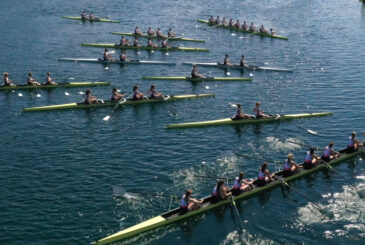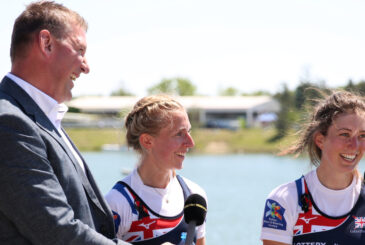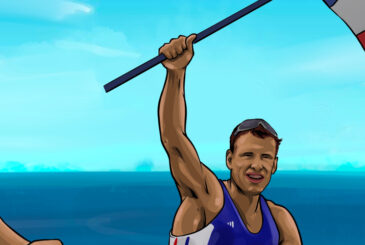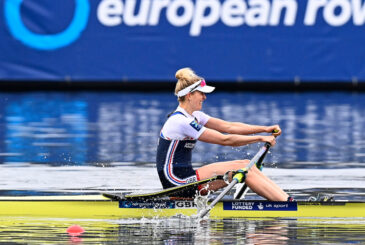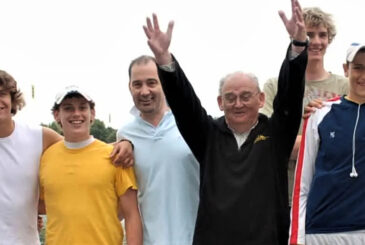Take a look at the first part of Carlotta Nwajide’s biography on her Instagram feed and you start to get some idea of what makes this 25-year-old German such a remarkable person. It reads: Rower & Activist #blacklivesmatter
The rowing part is briefly underlined by this articulate woman’s two stand-out performances so far: a silver in the 2018 World Championships as part of Germany’s top women’s boat – the quadruple scull – backed up with a gold medal, this time in the double sculls at the 2019 European Championships. To those palmarés you could also add an impressive silver medal at this year’s European Championships behind the Dutch quad.
While 2020 has been a year where Carlotta successfully fought her way back into the team after a thrombosis that forced her to miss the 2019 World Championships in Linz, it is a year that has also seen her take up the struggle against racism in all its forms.
Rowing is not a sport noted for having a significant number of black athletes at its highest echelons and that may lead to questions as to how far racism is really an issue in the sport. True that Cuba’s single sculler, Angel Fournier Rodriguez took silver at the 2017 World Championships while South Africa’s Sizwe Ndlovu stroked his lightweight four to a gold medal at the London Olympics. But these results are the exception.
Certainly, for a long time, Carlotta has been used to being the only person of colour in the German rowing team. While she has always felt welcome at her home club in Hannover, she feels that athletes and coaches in German rowing would benefit from participating in workshops to understand racism in all its forms.
Martin Cross spoke with Carlotta while she was on a break just after the European Championships. Her English is excellent, and a touch softly spoken. We talked of her rowing career and about Black Lives Matter.
Her words carry significance for all of us involved in the sport of rowing.
Martin: How were the European Championships?
Carlotta: It was a very well-run event. It was so good to have some competition again. Of course, it was different with everybody wearing a mask; for example, there wasn’t as much talking with other athletes, but it felt like a real championships. We were so pleased to beat the Dutch in our heat, so coming second to them in the final was a little disappointing. But it wasn’t a bad race for us.
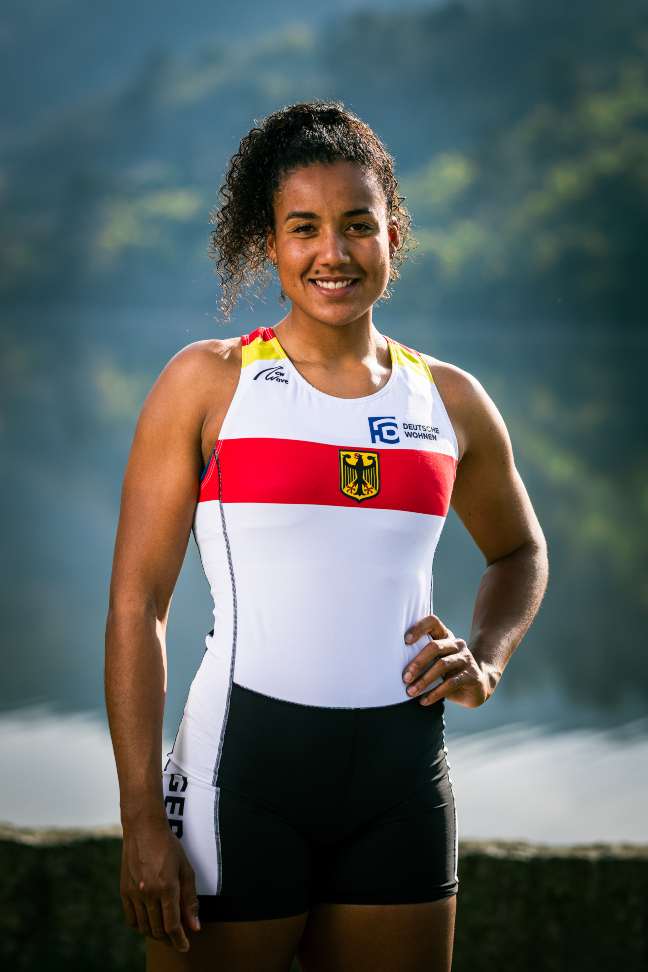
How did you get into rowing?
I started it when I was 10 at school. I wasn’t very good at sports and, at first, when the teacher asked, I wasn’t really interested. But my friends all joined, so I took the sport up to be with them and progressed from there.
When I was 14, I joined Deutscher Ruder-Club in Hannover and, by then, I already knew that I wanted to row in the Olympics and World Championships.
“I was delighted to be selected in the quadruple scull for the Olympics. But because of the delay, the process of selection will start again next season”
How did you end up in the single scull at the U23s?
I was very disappointed with coming in sixth in the double scull the previous year and I decided that if I wanted to win a medal maybe I’d have to make it on my own.
That 2016 season was really hard work. It was an intense year, but also fun and the result worked out – I came away with a bronze medal.
By 2018 you’d already been in the senior team for a year, but you had a great season.
I really felt that I was making progress, I had some really good results in my single at the trials, in my technique with a better feel to the boat; I really tried to have a good drive so I could let the boat flow. Making the quadruple scull was great. We won two world cups and won a silver medal behind the Poles at the World Championships.
Things must have felt so different the next year?
I had some problems in the system that year. I didn’t make the quad but was fortunate to find a good doubles partner in Leonie Menzel.
When we won the Europeans, I thought: ‘I don’t need the quad’. But it was after the Rotterdam World Cup that I experienced a real soreness. Eventually I couldn’t stand it anymore and, after going for tests, it turned out it was a thrombosis. I had to have three months out of the sport. I took an acting course and some holidays and rediscovered my motivation.
It must have been hard work to regain your fitness for 2020?
I had to work so hard. I came 17th at the German long-distance trial behind all the U23s, but I did feel that every session I was getting fitter and so I was very motivated.
In the end, I was delighted to be selected in the quadruple scull for the Olympics. But because of the delay, the process of selection will start again next season.
“It would be good if each coach and athlete could do an anti-racism workshop to learn things like what kind of behaviour, black people, or people of colour, find threatening”
Moving on to Black Lives Matter, what made you describe yourself as an activist?
It started with the death of George Floyd. Before then, when I thought I had experienced racism with white people, I would be told: ‘You’re just getting too emotional’.
After George Floyd’s murder, things seemed to change.
I noticed that a lot more white people wanted to understand what they could do to combat racism. I felt particularly inspired by Alice Hasters’ book What white people don’t want to hear about racism, but should know anyway. I was sure there was something I could do in my sport.
What ideas did you have?
I thought it would be good if each coach and athlete could do an anti-racism workshop to learn things like what kind of behaviour, black people, or people of colour, find threatening. Some people are saying ‘It’s not necessary’, or ‘I’m not interested in it’, but I’m motivated to keep the discussion going.
I just had a meeting with our Sports Director and I had to explain a lot about the issue – he indicated that this workshop was something they would consider. The truth is that there are struggles talking about racism in a predominately white environment.
“Sometimes I really need to think of what I do because I know that my actions will be connected to my skin colour”
What about outside of rowing?
We have an organisation that stands for athletes’ rights in Germany. So far, we’ve had a couple of meetings.
In the sport of athletics there are many people of colour, who have experienced racism. It’s a big problem in German athletics. We’re trying to bring this topic into the mainstream to improve things. As an athlete, you have the power to reach a lot of people. Things are developing more and more.
What’s been your experience of racism in Germany?
I have to say I have always felt really welcome in my home club of Deutscher Ruder-Club in Hannover. They have a bigger than life-size poster of me in the club and, as a world medallist, my name is inscribed on a plaque in the club.
But, for example, I recently did an interview for a radio station on racism. As a result of which I experienced for the first time some ‘hate speech’ on social media. It was shocking. I plan to hold an event where I read out some of these messages.
There’s not a lot of black people in rowing. And often people are talking about your skin colour. Sometimes you hear the ‘N’ word – people using it just for fun. Sometimes I really need to think of what I do because I know that my actions will be connected to my skin colour.
What do you hope to achieve?
I hope my actions will help people younger than me. I feel I’m fighting for something better. I know thing won’t change in one or two years, but the more people listen and change their behaviour, the more they will start to make the world a lot easier for black people.
Photos: Feedbuilders and DRB/Seyb


